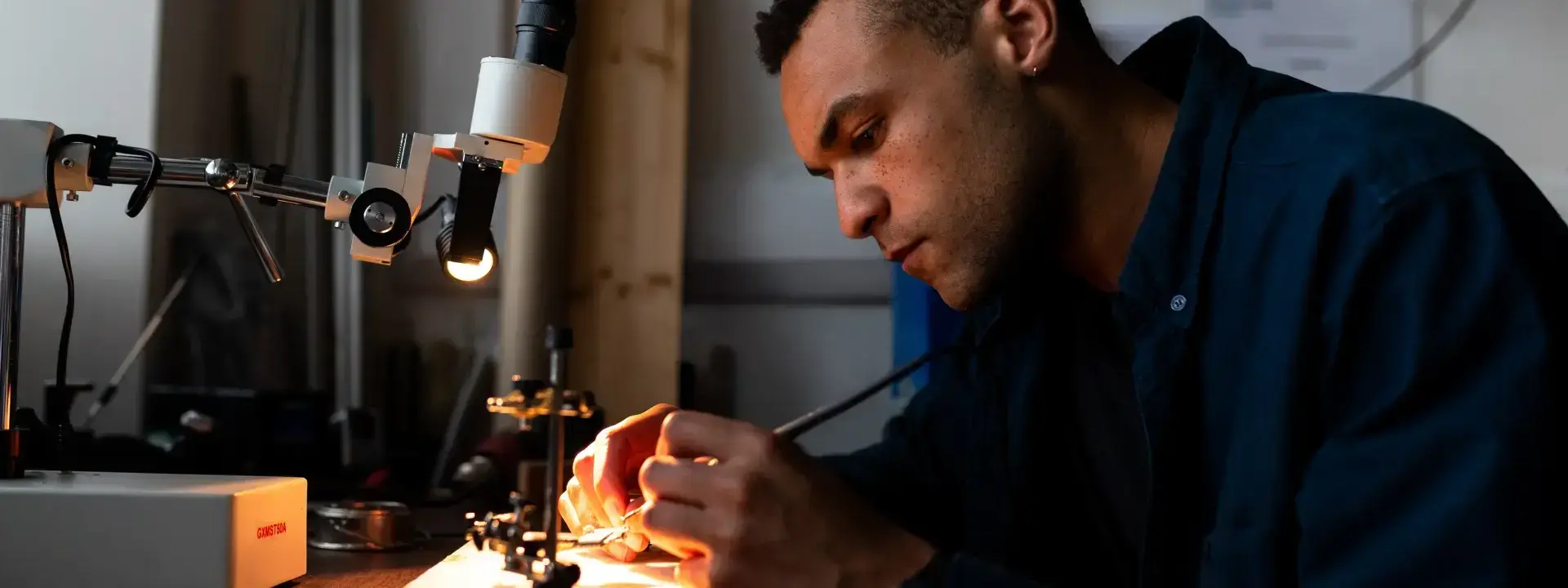
Solderer Job Description
What is a Solderer Professional?
A solderer is a tradesperson who joins together pieces of metal using solder. Solderers use an alloy with a lower melting point than the metals being joined, which melts and then resolidifies to create a strong bond between two pieces of metal. Depending on the application, different alloys may be used for the solder; for example, lead-based alloys are often used when working with electronics or jewelry because they have a low melting point and can flow into small spaces easily.
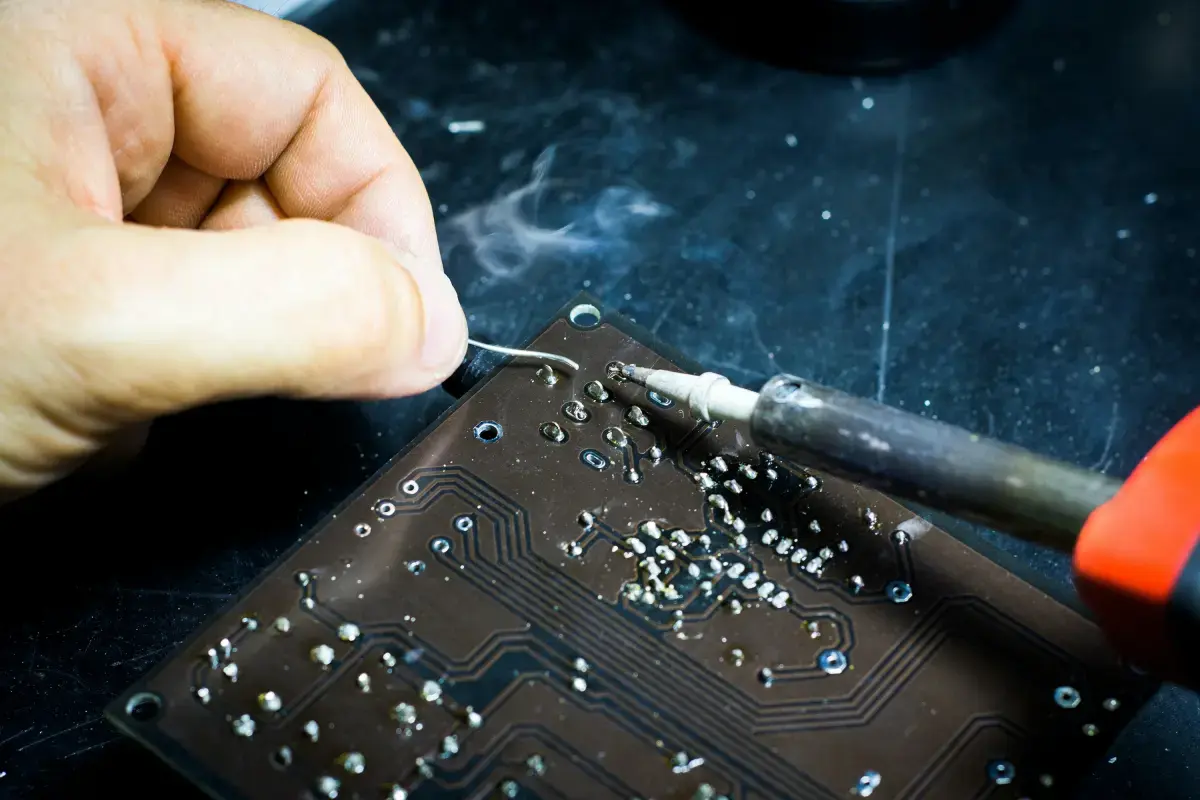
What does a Solderer Expert do?
The process of soldering usually involves heating both the area to be soldered (the joint) and the solder itself until it reaches its liquidus temperature—the temperature at which it becomes liquid enough to flow freely. Once in this state, gravity or capillary action can pull the molten solder into place before it cools down and solidifies again. A sharp tool called a spudger is sometimes used to help guide along particularly stubborn bits of solder that refuse to melt properly otherwise. Afterwards, fluxes are applied onto one side where metals meet but don’t touch completely in order other oxide layers generated by heat during welding process so that contact could occur between these surfaces welded finally; if there were no fluxes added previously
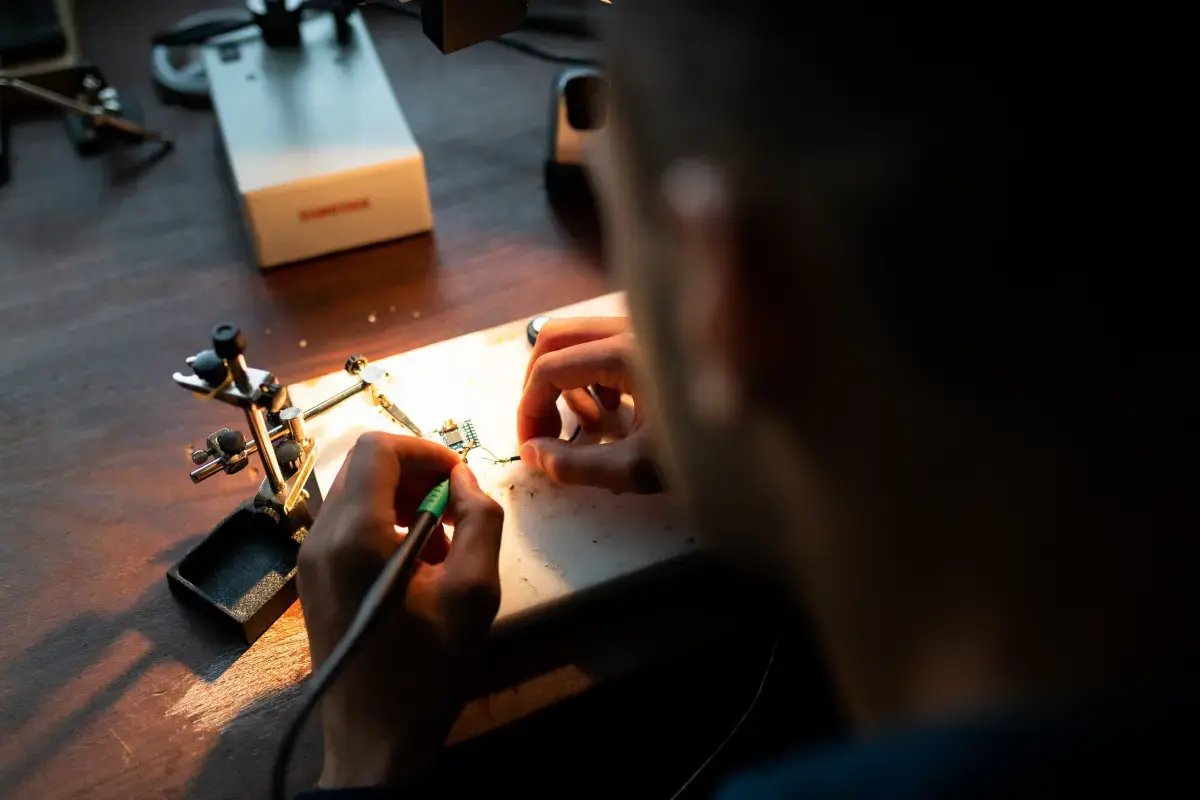
What are the Skills of a Solderer?
Soldering is a process in which two or more pieces of metal are joined together by melting and flowing a filler metal (solder) into the joint. The filler metal has a lower melting point than the base metals being joined, so it can be melted without damaging them. Traditionally, solder was an alloy consisting of% lead and 40% tin; however, due to concern over health hazards associated with lead-based solders, most jurisdictions have banned their use for electronics work. "Lead-free" alloys such as SAC30 (% tin, 3% silver , % copper) are therefore now used instead Although high-power lasers capable of welding sheet metal have been available since the 0s4 they do not replace soldering because laser weld joints lack both electrical conductivity and mechanical strength at low temperatures — essential properties for many electronic devices that must operate correctly under extreme thermal conditions such as those experienced during aircraft takeoff and landing cycles (- °C to °C).
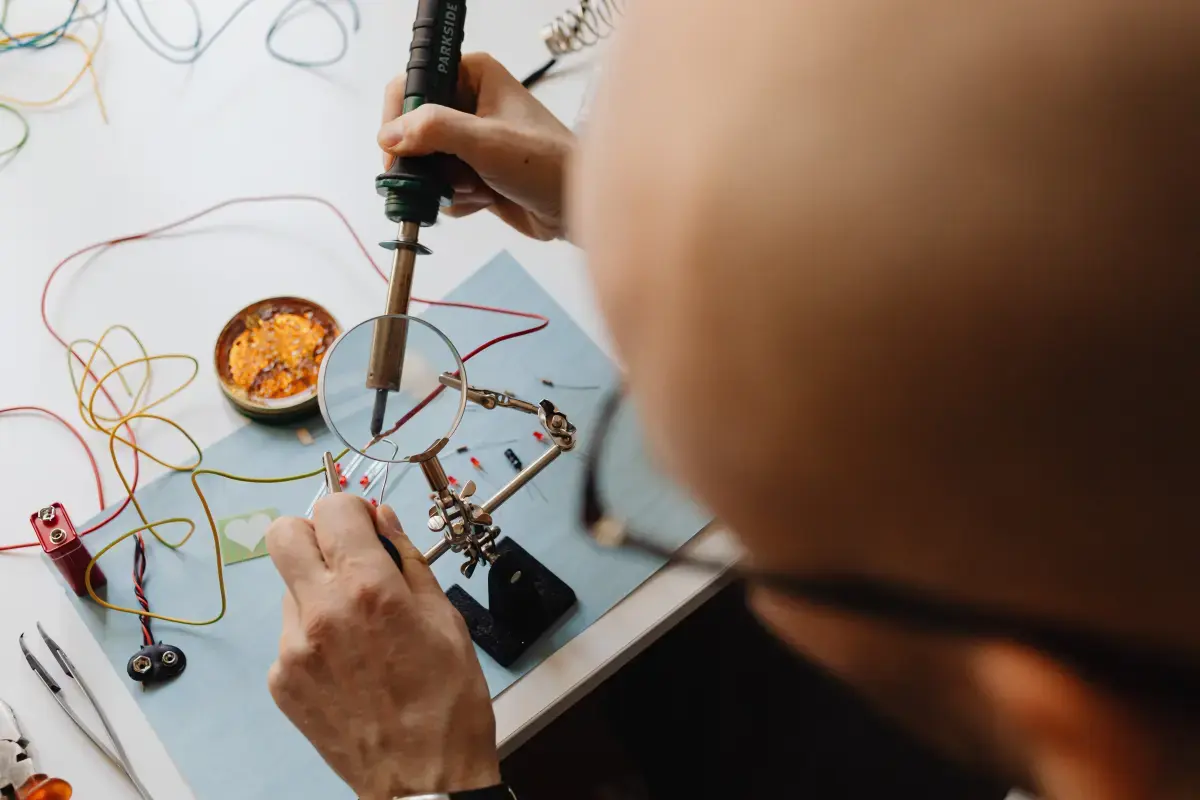
What makes an Expert Solderer?
A good solder joint should be: Strong enough so that it will not break when exposed to external forces or vibrations Resistant to corrosion from moisture or other environmental factors Electrically conducting so that electricity can flow freely through the connection 4) Thermally stable so that it does not melt easily when exposed to heat In order for these criteria to be met, certain basic requirements must first be fulfilled by both the materials being joined (the workpieces), and the person doing the joining (the operator)
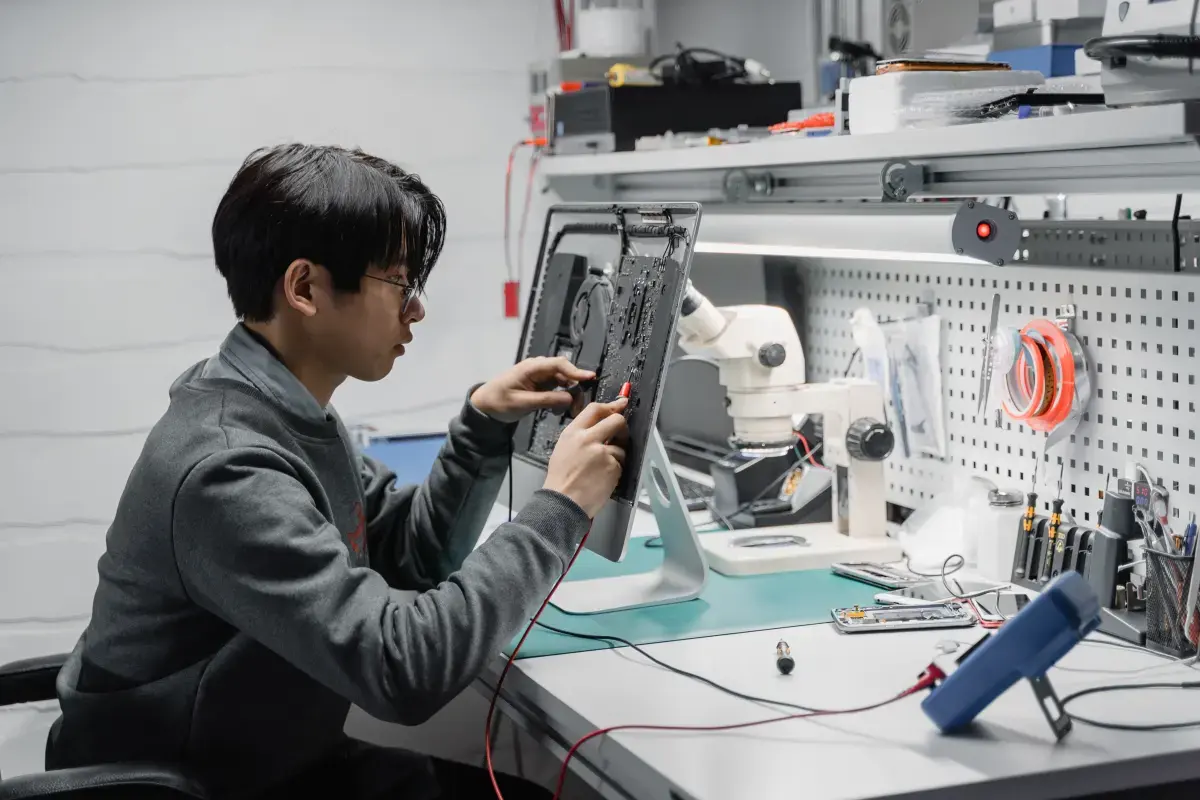
What level of Experience & Qualifications are required to be a Solderer?
At least one to three years of industrial soldering experience and/or certification in specialized soldering methods. -Familiarity with soldering tools and equipment, as well as safety considerations related to soldering. -Ability to interpret diagrams, schematics and instructions quickly without errors. -Technical training in college or vocational programs including courses on electricity, electronics or mechanics is essential. -Knowledge of different types of metals often used in industry such as steel, copper or bronze is desirable. -Experience with surface mount technology (SMT) is beneficial for those looking for a high level position in the field. -Accuracy and precision are key character traits when it comes to being an expert solder because mistakes can be costly if a component isn’t joined correctly or firmly enough to provide support during operation. -Must have knowledge of other tasks related to electrical engineering such as wiring, designing circuits etc., so proficiency working with tools from multiple categories is necessary too.

What is the Salary of a Solderer?
For junior-level solderers, the salary expectations can range from minimum wage to around $30,000 per year. At this level of experience and education, solderers typically perform more basic tasks related to the assembly of parts. As their knowledge and skills increase over time, they may be able to advance in terms of responsibility levels or scope of work performed. Senior-level solderers may earn upwards of $50,000 per year depending on experience and type/scope/complexity of work that is performed. Soldering can become a highly specialized profession with senior individuals performing design level engineering duties such as ordering custom parts for assemblies or troubleshooting complex component issues. Individuals at this skill level often operate in leadership roles where they both direct teams as well as individual workflows related to a project’s completion milestones. Thus the consultancy salary range for Senior Soldering Professionals can easily reach beyond $70k+ depending on jurisdiction regulations surrounding rates for contractors working hourly projects vs salaried employees inhabiting full-time permanent positions within an organization or corporate entity
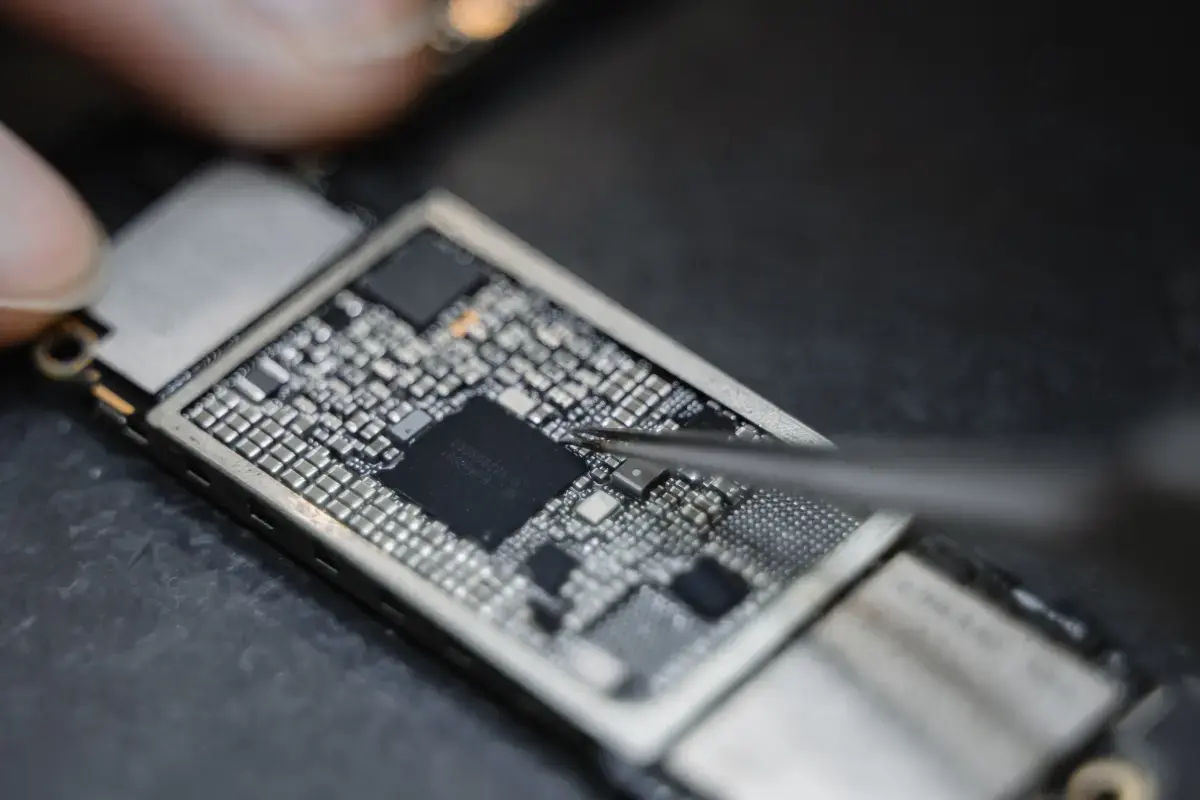
What are the Working Conditions for a Solderer?
A solderer typically works in a small, enclosed space with good ventilation. The specific tasks associated with this job depend on what is being soldered, as the techniques and materials used can vary greatly. The majority of work involves the use of a soldering iron to join wires and other metal components together. In some cases, solder is applied by hand, while other times specialized machines are used. Safety is always an important factor when working with electricity and exposed wires. It is important to wear protective clothing including gloves and eyewear. The workplace should be kept clean and free from debris so that it does not come into contact with hot surfaces or molten solder which could cause injuries or electrical damage to equipment nearby .Most importantly following safety protocols such as wearing appropriate PPE (Personal Protective Equipment) at all times when near hazardous material such as flux fumes from the welding/soldering process should always be adhered to for both yours your coworkers safety!
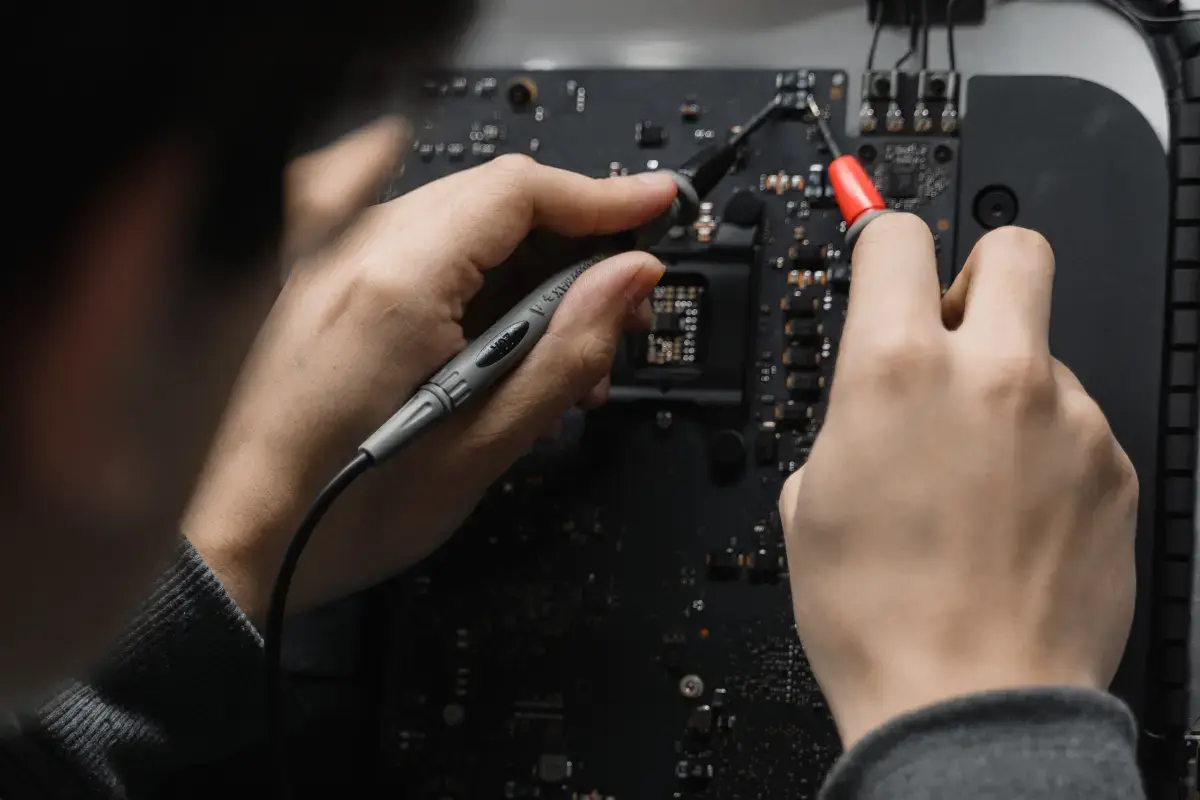
What are the roles and responsibilities of a Solderer?
Prepare surfaces for soldering by cleaning, removing old solder, or applying a flux
Assemble parts and components prior to soldering
Position parts and pieces in order to be joined together during the soldering process
Use various hand tools to apply heat during the soldering process
Feed solder into the area being heated in order to join two surfaces together
Remove excess solder from completed joints using a Solder Sucker or similar tool
Check functionality of circuit boards or other items after they have been soldered
Inspect finished products for properjohn Lug strength and general condition of surface entire initcomponents joins themselves
Rework and Repair errors as neededRe-clean after heating to remove joint areato prevent possible future defects defects melted old materials joint surfaces solder bridges
Handles mallircuitryJoint positioning AssemblingHeatingUp &MeltingSucking
Offers & applied flux protection
Meltsat relatively low temperaturesSealscavitiesfrom oxidationBringsbase metals into liquid state
Improveswetting actionAlloyswith basemetalInvolvesa reaction
Is used toprevent corrosionDo notchange metalelectricalcharacteristicsAfter it coolsit becomes
harder than solder itself
Conductselectricity
Resistsheat well once cooled
Adheres well
Readilyforms alloyswith mostmetals20 Can withstand thermal cycling
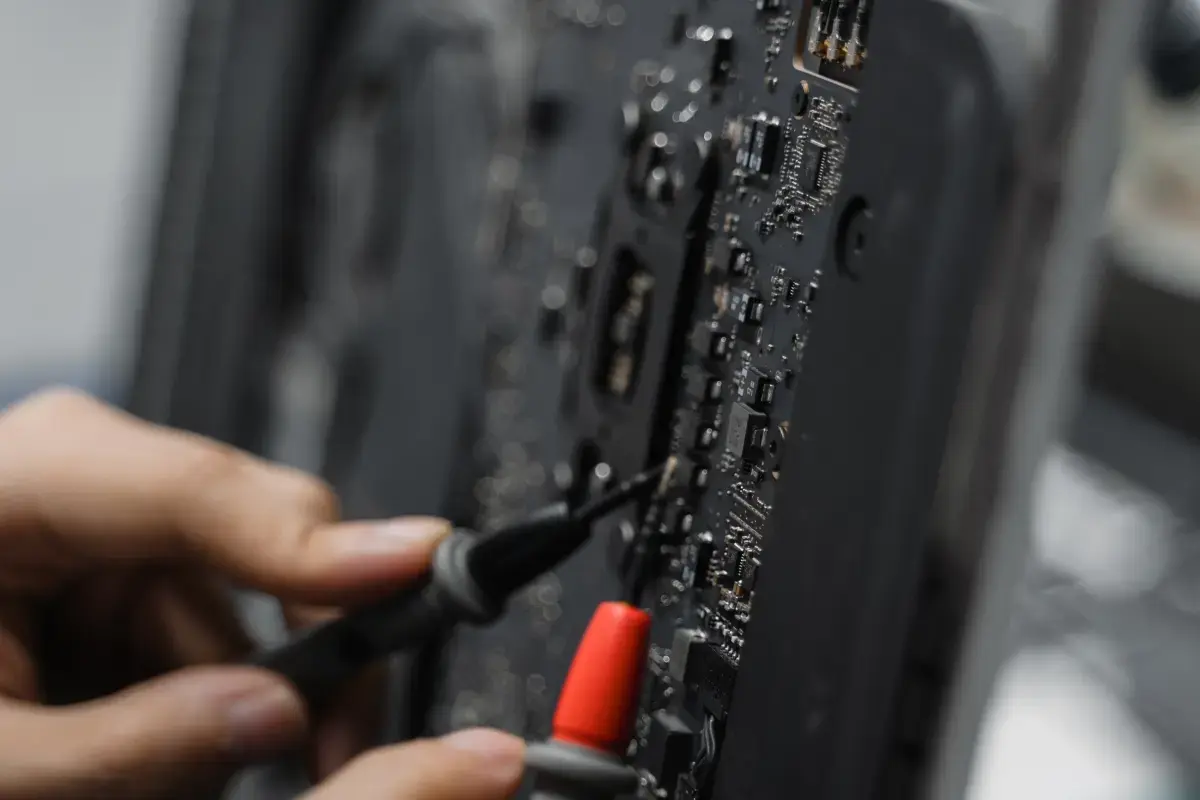
Where can I find Solderer jobs?
- Create a profile on gigexchange and promote your Solderer skills to advertise you are Open to New Work Opportunities
- Ensure your Resume (or CV), or online work profile is up to date and represents your skills and experience. Ensure your reputation reflects your ability & attitude.
- Apply for Solderer Jobs advertised on gigexchange.
- Practise Solderer interview techniques to ensure you represent your personality and ability succinctly and confidently.
- Accept the job offer if the salary meets your expectations and the employer mission and purpose reflects your core values.
Jobs
What are the best job boards for Brazer jobs?

How can I hire Solderer staff online for my business?
The best job board for recruiting Solderer experts is gigexchange.com. Advertise full-time, part-time or contract jobs to find, hire & recruit trusted, experienced and talented Solderer candidates near you.
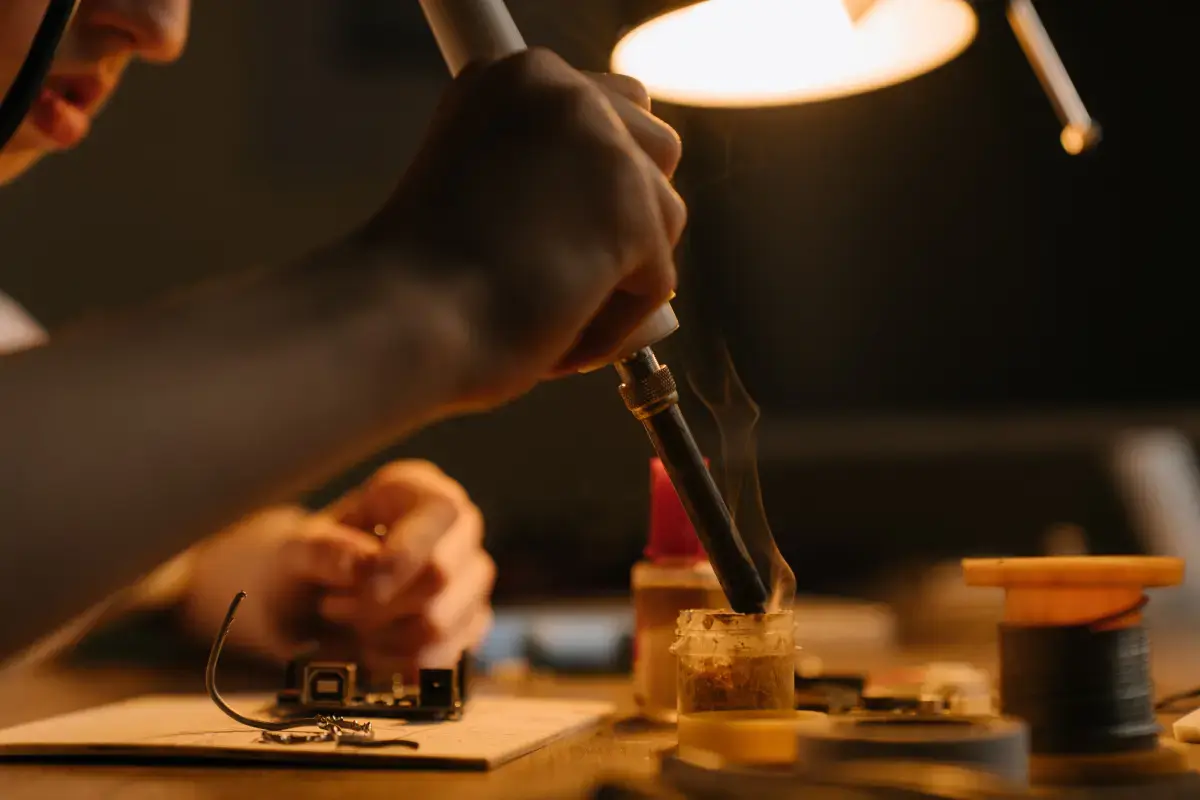
Are Solderer roles in demand in 2026?
Solderer experts are still in high demand in 2026. If you are an experienced Solderer or looking to train and become one. The job market is looking strong for Solderer jobs near me.